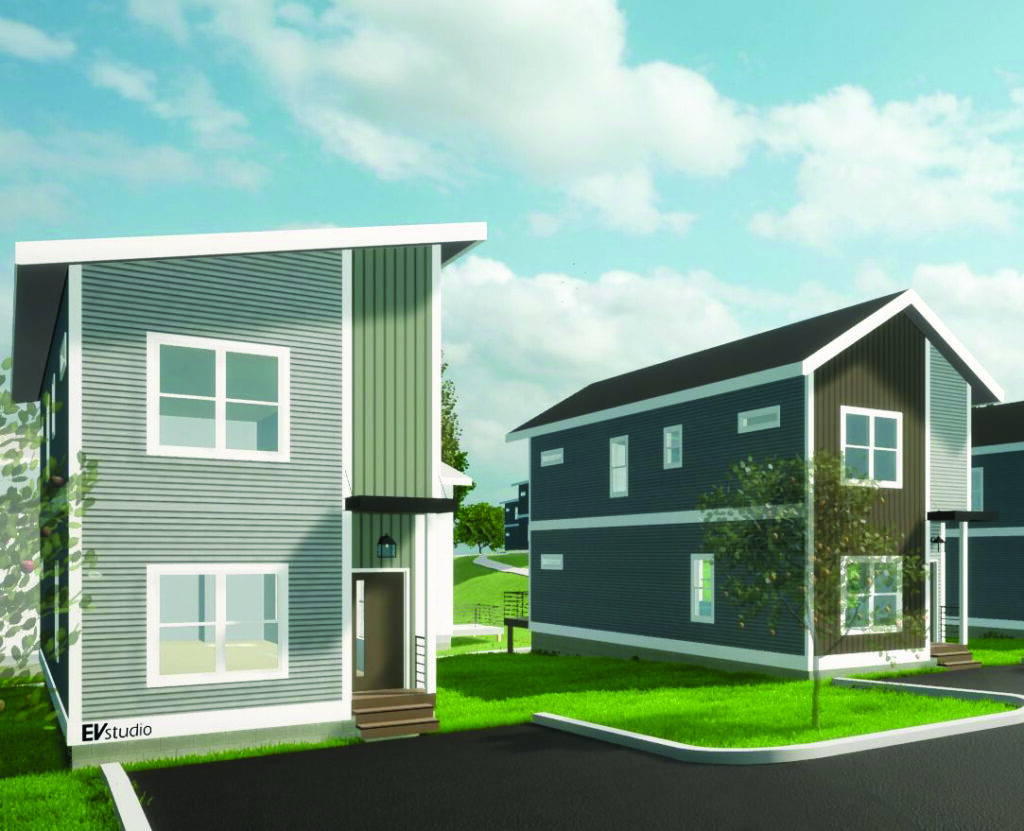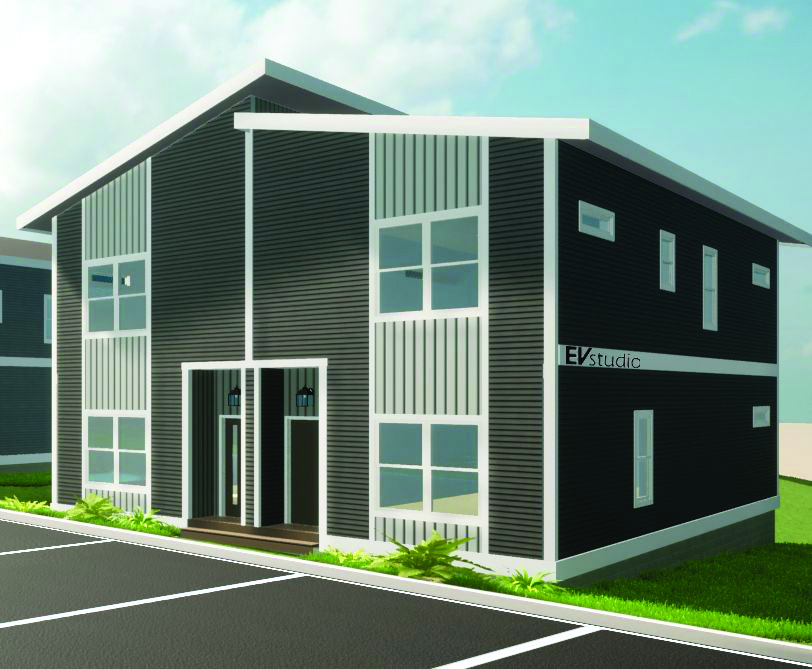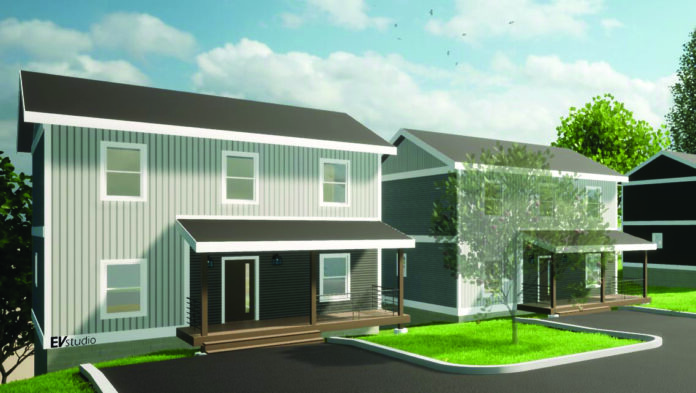Where speed and efficiency count, modular construction gives builder/developers a leg up.
- New modular homes built specifically for renters offer the features and amenities they desire but can’t afford in a for-sale house.
- Factory construction ensures consistent quality across the board and quick delivery to the site.
- Champion Homes is partnering with small- and mid-tier developers to enable them to take advantage of modular’s benefits.
Finding enough money for a down payment on a new home is out of the question for many consumers, who face the burden of rising interest rates and other inflationary pressures. “They have more of a propensity to rent because they have less ability to raise funds,” says Mark Yost, President and CEO of Skyline Champion Corp. based in Troy, Mich. The result is a booming build-to-rent, or BTR, market.
Giving impetus to the BTR wave is the fact that a lot of renters are tired of apartment living. They want a single-family detached home with a yard and enough living space so that family members don’t trip over each other. However, most can’t afford the high prices in many desirable neighborhoods. That’s why modular manufacturers are teaming up with builder/developers to facilitate the development of BTR communities that are financially attainable to a wider range of prospective tenants.
Champion entered the BTR market approximately two years ago with the launch of its Genesis brand, a builder-grade product that is geared for homes that have the look of site built, says Yost.

Photo courtesy of Quartz Properties
Renters by Choice
Rising interest rates and unstable material costs are contributing to a shortage of 2.3 million homes in the United States, according to March, 2023 report published on marketwatch.com. That number includes multifamily rentals as well as single-family detached homes, and it’s growing daily, says J. Don Overton. Principal of Terra Verde, a developer and homebuilder in Little Rock, Arkansas.
When it comes to interest rates, Overton says that most people don’t want to pay more than 5.5%. “We are currently above that rate, so a large portion of people would rather wait until rates drop before purchasing.”
In many markets, he says it currently costs 20% to 40% less to rent than buy. “The 1500 to 2500 sq. ft. starter home of the past cannot be economically constructed in most markets at an attainable price point for first-time homebuyers, or for active adults who are looking to right-size their housing,” Overton says. “However, [with modular construction] we can provide that starter home as a rental at an attainable price for those buyers.”
As of October 2023, Terra Verde had two projects under development with a combined 550 units. “We’re hoping to finish each project with modular units,” he says.
In Asheville, N.C., Quartz Properties, a development company based in Newton, Mass., is building 90 homes at Belle Meadow, including single-family homes and duplexes, in partnership with Champion Homes who will deliver modular homes to the site. Quartz is active in both Colorado and North Carolina.

Photo credit: Courtesy of Quartz Properties
“This is our first project in North Carolina with Champion,” says Quartz CEO Joanna Schwartz. “We’re one of the few [developers] that is completely modular focused. We started the company with the premise that we wanted to capitalize on all the opportunities in modular.”
Quartz is vertically integrated, with a transportation and set business in North Carolina, and acts as general contractor on most projects. The company started out five years ago building for-sale modular homes. Belle Meadow is their first BTR project.
Schwartz continues, “We believe that if you focus on modular and design your company around it, you can compete with production developers on a smaller scale. We know how to optimize designs, shipping and on-site work. The cost savings are more on the capital side, because we can set the house and get a C.O. [certificate of occupancy] within 30 to 60 days instead of four to six months.”
The targeted renters want more living space, including outdoor space. Homes at Belle Meadow average 1,650 sq. ft. and have three or four bedrooms.
Quartz worked with an architect to take their designs to the next level, Schwartz says. “We also worked very closely with the Champion factory to understand not just the floor plan, but also the roof design: how that impacts the elevation versus how we’re designing it, and how it can easily be installed on-site.”
At press time, most of the horizontal construction at Belle Meadow had been completed. Champion is simultaneously producing the modules in one of its Pennsylvania factories. “We can fabricate the modules while the subdivision is being buttoned up,” says Yost.
Quartz expects to open the community to the first set of tenants in summer 2024.
“The typical demographic for BTR is people trying to get out of apartments in urban areas for a little bit more [square footage] and a little bit of private outdoor space to feel like they’re in a home, even though they don’t own the home,” Schwartz says.

Photo credit: Courtesy of Champion Homes
Empowering Smaller Builders
Champion wants to be a partner in more BTR developments. “Our goal is to empower small to medium-size builders and investors by allowing them to share the economies of scale a big company [offers],” Yost says. Services they are offering include digital marketing, on-site sales help, and financing (through partner companies).
When asked about the biggest advantage of modular, Yost cites the same one as do other developers this magazine has interviewed — it takes less time than site building, so it eats up less investor capital. “Because we can [fabricate] in conjunction with the land development, it allows customers to get into the home sooner; allows the rental property to start [generating cash flow] faster; and saves on the cost of that home on the back side.”
Of course, modular isn’t the best choice for every project, but a developer who is committed to this way of building should develop some expertise on where it will, and won’t, work. “We know the kinds of sites it works on,” says Schwartz. “We know how to optimize the designs in the factory to minimize site work, how to optimize shipping, and how to price the on-site work.”

Photo credit: Courtesy of Champion Homes
Overton has found that using modular construction for BTR projects improves a development’s bottom line. “Volatile interest rates and supply-chain issues are making this even more true,” he says. However, it’s important to work with a factory that’s close enough to the site to avoid transportation issues.
He says the primary issue, from a builder/developer perspective, is educating local officials and lending institutions about the fact that modular is built to the same, or better, building codes as site-built, and that a modular home is not the same as a manufactured or mobile home.
Schwartz says Quartz Properties’ partnership with Champion goes a long way toward overcoming those hurdles. “So far, we like the way [BTR is] modeling out,” she says. “We think it’s going to deliver a product that has been missing from the market.”
Susan Bady is a freelance writer based in Chicago, Ill., who focuses on residential and commercial design and construction topics including sustainability and building technology.







